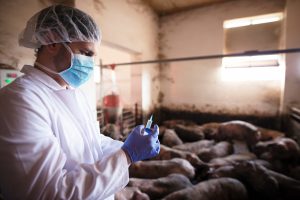The last two years have seen political transformations in One Health. These political commitments at different levels, along with the evidence of the interconnections between humans, plants, animals, and the environment that the pandemic has brought, will hopefully thrust One Health forward in governments’ agendas.
First, at the end of May 2021, the One Health High-Level Expert Panel was launched with the support of the governments of France and Germany. This panel has an advisory role to state members of the United Nations (UN) and the World Organisation for Animal Health (OIE). It includes 26 selected key international experts from 24 countries. The panel has already revamped the definition of One Health, stating that “One Health is an integrated, unifying approach that aims to sustainably balance and optimize the health of people, animals, and ecosystems. It recognizes the health of humans, domestic and wild animals, plants, and the wider environment (including ecosystems) are closely linked and inter-dependent. The approach mobilizes multiple sectors, disciplines, and communities at varying levels of society to work together to foster well-being and tackle threats to health and ecosystems, while addressing the collective need for clean water, energy, and air, safe and nutritious food, taking action on climate change, and contributing to sustainable development.”

The panel met for the first time in person during the 2022 edition of the Geneva Health Forum on May 6th and provided critical input into the development of the One Health Joint Plan of Action, devised by the Food and Agriculture Organization of the United Nations (FAO), the World Health Organization (WHO), the OIE, and the UN Environment Programme (UNEP). This plan of action includes “six main action tracks: enhancing countries’ capacity to strengthen health systems under a One Health approach; reducing the risks from emerging or resurfacing zoonotic epidemics and pandemics; controlling and eliminating endemic zoonotic, neglected tropical or vector-borne diseases; strengthening the assessment, management, and communication of food safety risks; curbing the silent pandemic of antimicrobial resistance (AMR) and better integrating the environment into the One Health approach”.
The panel has also delivered a paper on One Health surveillance and a list of the key upstream drivers of zoonotic spillover based on the existing literature and the expertise of its members. The panel is next planning to deliver an evidence review for these drivers, in addition to an associated risk mitigation strategy, and a review of the current knowledge and practices on the prevention of emerging zoonoses.
Then, in mid-March 2022 the Tripartite partnership for One Health, which brought together FAO, WHO, and OIE, formally became the Quadripartite as it signed a Memorandum of Understanding with UNEP.
By: Olga Muñoz | Graduate Assistant
 0
0
